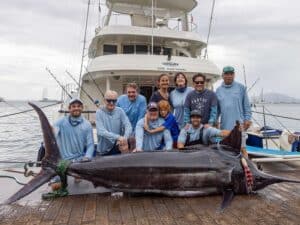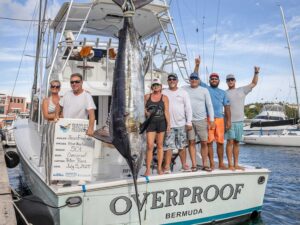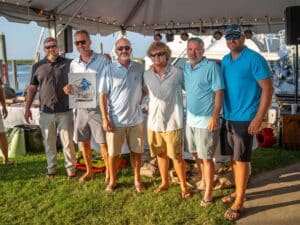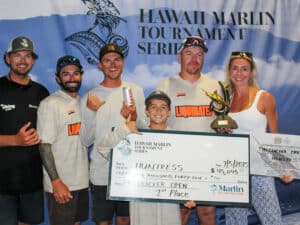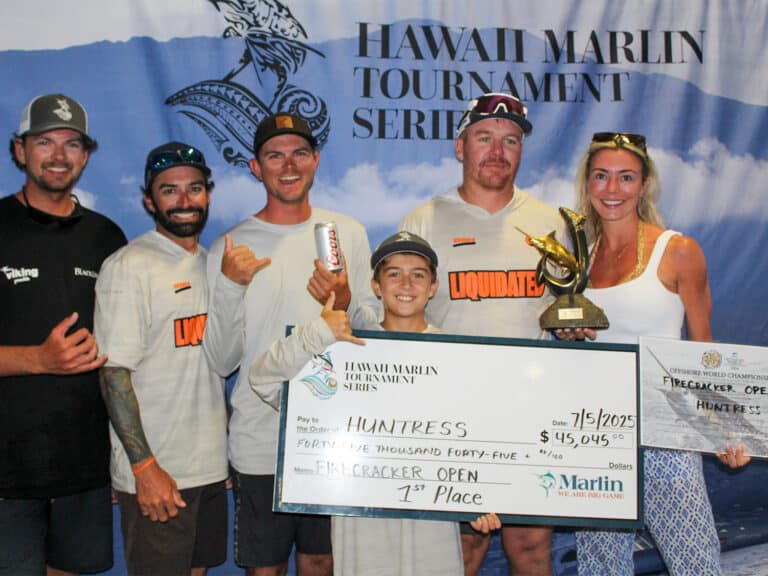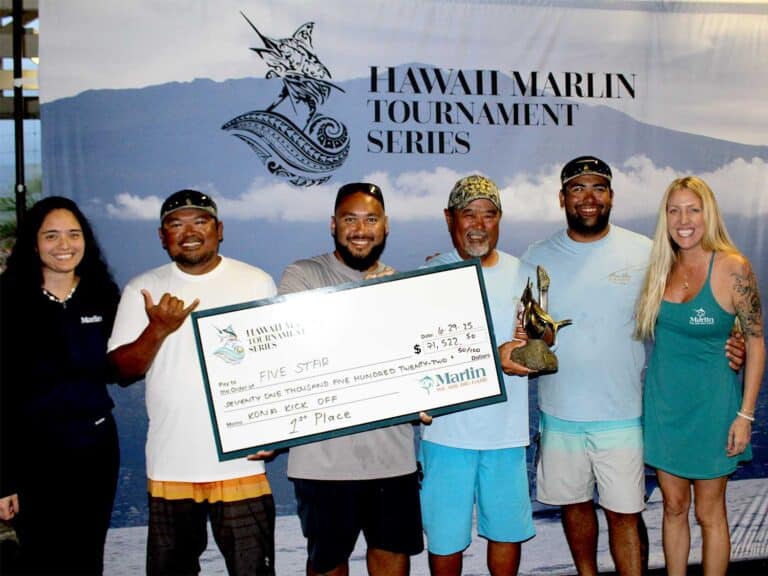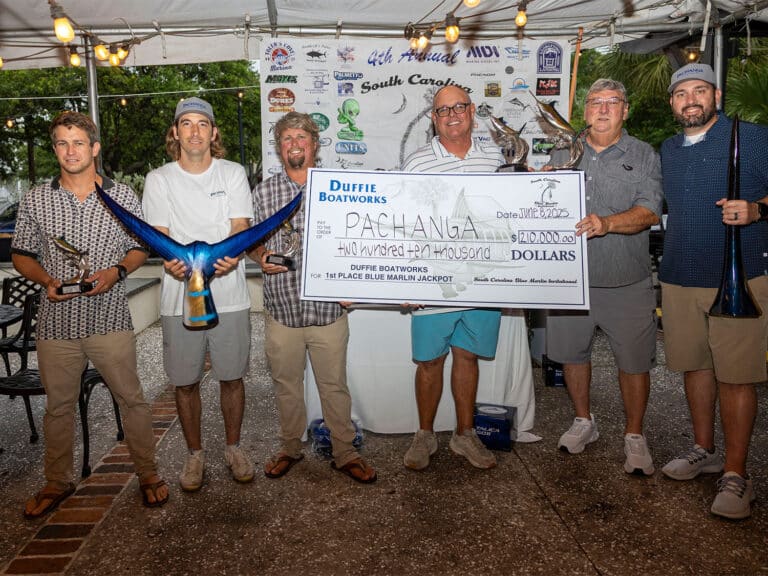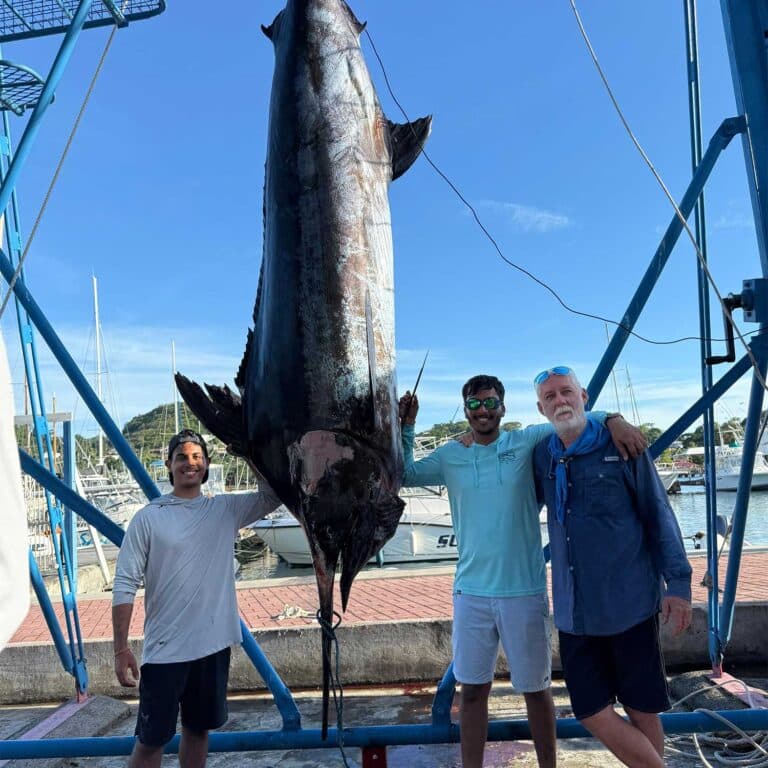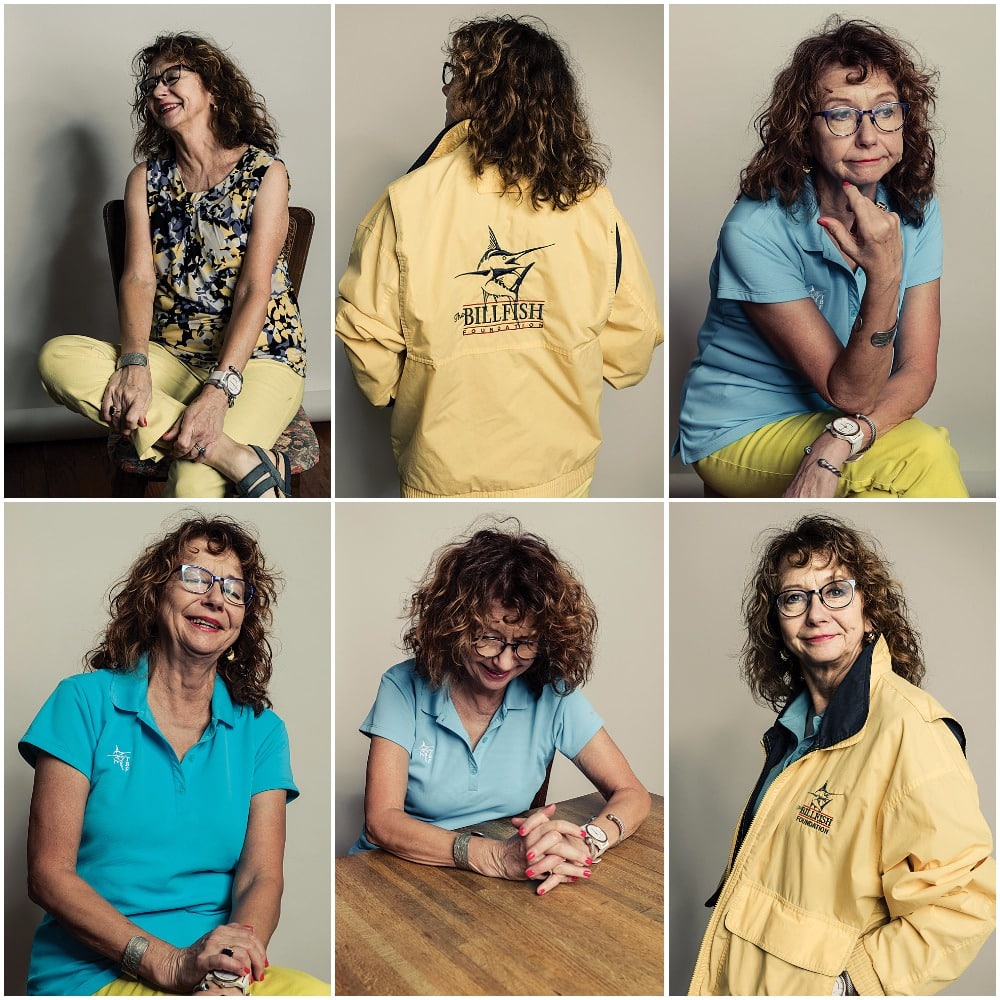
Mississippi born. Beach kid. Steel magnolia. Ellen Peel wasn’t satisfied with just her law degree from Ole Miss, so she headed west to Seattle, where she earned her master’s degree in law in marine resources from the University of Washington. One of her professors said: “Don’t think that this degree will get you a job. You have to make your own opportunities in this industry.” And she did. From the West Coast, Peel took her specialized fisheries-management knowledge first to a position in Washington, D.C., then in 1996 to her new job as executive director of The Billfish Foundation. She moved to Boca Raton, Florida, after finding a home with a yard sufficiently large enough for her two Doberman pinschers, and she hasn’t looked back since.
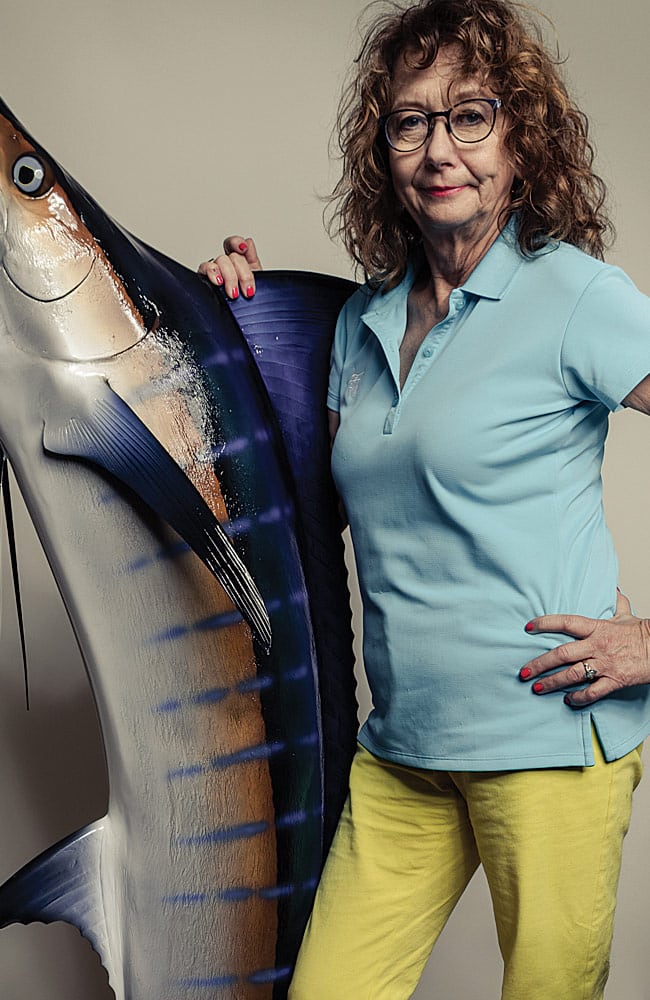
M: You’re proud to be from the Gulf Coast — why is that?
The people on the Gulf have such a strong dedication to causes and an ardent passion for all kinds of fishing. The same qualities they possess for SEC football, they have for fishing. If Gulf Coasters want something, they go after it with vigor.
M: What is your earliest billfish memory?
In 1976, when I was fishing a Pensacola Big Game Fishing Club tournament. Another angler hooked a blue marlin, and I remember being mesmerized by the speed of the line leaving the reel. There was a scientist from the National Marine Fisheries Service back at the dock, who explained the importance of tagging and releasing fish which, at the time, was a novel concept. A lot of those fish were taken. I’ve been hooked ever since.

M: Your late husband, Dr. Russell Nelson, was a big part of conservation, wasn’t he?
Russell was a fish scientist and I was, and remain, a billfish advocate, so our relationship seemed like a natural fit — he and I were both passionate about fishing and improving fisheries management and conservation. Russell had been the director of Florida’s Marine Fisheries Commission, so his efforts dealt with many species. I, however, was so enamored of billfish that they were my primary concern, until I learned overfishing of tuna often increased the number of billfish killed as bycatch. I was so fortunate because Russell was a rare scientist who understood both the scientific and policy aspects of conservation and management. My academic background in law meant I knew policy, but Russell oftentimes ensured I had a good working knowledge of the technical science as well. So, yes, we fueled each other’s fire, but neither of us needed it, because we were both enthusiastic about conservation and responsible fisheries management.
M: Will we ever see billfish tournaments go to a strictly all-release format?
Unless there’s a government mandate, no. The inclusion of big prize purses has entirely changed the dynamics of tournament fishing since the 1960s and ’70s. But since then, many tournaments have increased minimum size limits, and others moved to an all catch-and-release format. Some tournaments pay money for the most releases, and others allow the tournament to be won based on release points. Even so, the landing of Atlantic marlin — whites and blues combined — in the United States is limited to 250 per year, and the recreational take has never come anywhere close to that number.
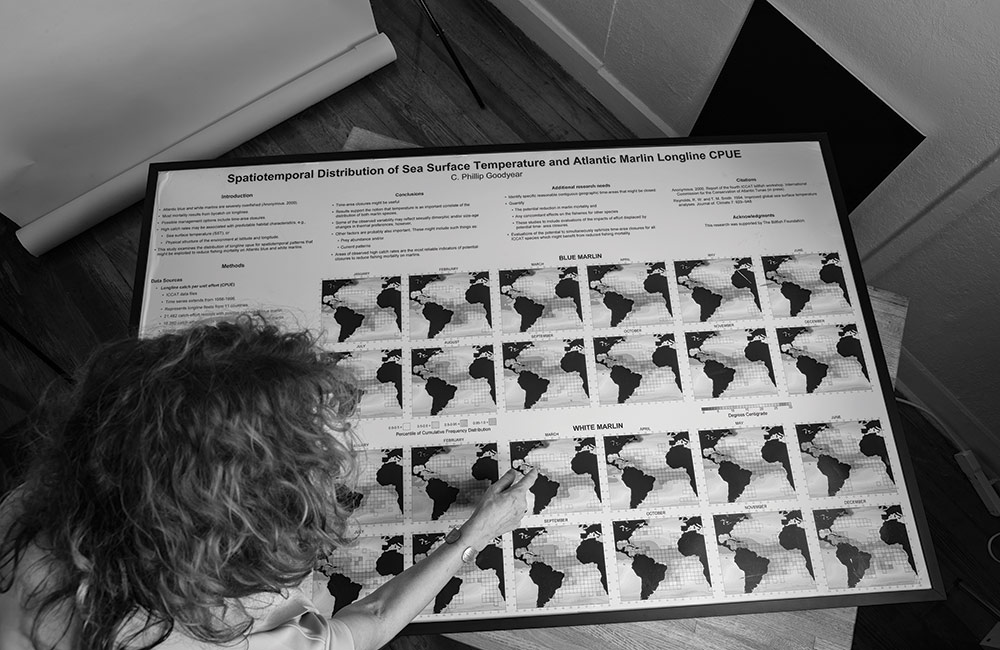
M: What’s it like being a prominent female figure in the male-dominated fishing industry?
It’s pretty exciting, truthfully. There are quite a few great female anglers in this sport. Fifty-something years ago, Kay Rybovich and her friends created the International Women’s Fishing Association because they were tired of the guys leaving them on the dock. So while there are certainly a lot of men in the industry, women are becoming much more of a presence. As time goes on, more women will take pivotal roles in the sport-fishing community.
M: In an ideal world, where do you want to see billfish conservation in 10 years?
I would like to see the Pacific nations, at domestic and international levels, give billfish conservation and management priority, and recognize the recreational billfish and tuna fishery as an important industry. Even Australia doesn’t have a person from the sport-fishing community advancing that premise during international negotiations. Within the past few years, the European Union fish negotiators were unaware that great billfishing took place in some of their waters — that is, until I informed them otherwise. The EU should be proud of its recreational fisheries and actively work to protect them. In sum, we need more worldwide awareness to the viability of the recreational sport-fishing industry.

M: Any misconceptions you’d like to clear up?
Sometimes people wrongly think TBF is an environmental organization, and we are not; we are a sport-fishing conservation organization. Our mission is to advance objective science and responsible management policies, not policies that are punitive to recreational fishing. Our membership and board members are anglers, boat owners, captains, mates and scientists alike. To study and learn about billfish, a great deal of data must be collected, part of which comes from the catch/release/recapture reports and some from studies of landed fish, but both kinds of data are very important. I want to raise awareness about TBF, about the importance of billfish and the sport-fishing community beyond where it is today. We love catching marlin and sailfish as much as the next person — we just advocate doing so in a responsible manner so our children and their grandchildren have the opportunity to catch just as many. —Austin Coit
